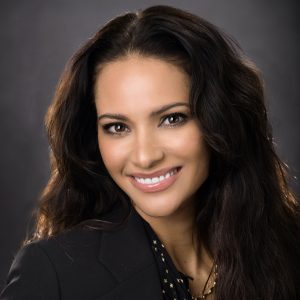“He was a very, very popular math professor” and also “into computers in the sixties, before anyone knew what computers were,” Father Regan said. “He just had such an incredibly interesting life.”
Thus inspired, Father Regan pursued his own career as a Jesuit and an educator. After graduating from Boston College, he earned master’s and doctoral degrees from Fordham in 1982 and 1984; served as a philosophy professor and dean at Fairfield University and Loyola University Chicago; and came to Fordham as a visiting associate professor of philosophy from 2010 to 2011.
He was provincial of the New England Province of the Society of Jesus for six years, and in 2020 he returned to Fordham. He sits on the Board of Trustees, co-chairing its Mission and Social Justice Committee. And he is also superior of Fordham’s Jesuit community, housed in Spellman Hall on the Rose Hill campus.
Jesuit Benefactors
This latter role has exposed him to a new joy of the Jesuit life: philanthropy. While he’s done his share of fundraising, he said, “coming here as rector was the first time I actually got to give away money.”
That’s because the Jesuits of Fordham Inc., incorporated in 1970, donate the lion’s share of their salaries, in compliance with the laws of the Society of Jesus. As superior of the community, Father Regan is the one who conveys the funds—to Fordham University and to Cristo Rey New York High School, Jesuit middle schools, and other nonprofits including Jesuit Refugee Service and Catholic Charities.
“Over the years, we’ve been able to send a lot of money back to the University,” Father Regan said, noting that the 31-member Fordham Jesuit community numbered more than 100 when he arrived as a graduate student in the late 1970s.
The community endowed the St. Ignatius Loyola Chair, supported programs across the University, and, in the 1990s, created the Jesuits of Fordham Endowed Scholarship Fund.
In recent years, the community has made new, generous gifts to this fund, supporting the University’s $350 million fundraising campaign, Cura Personalis | For Every Fordham Student, and its goal of providing equitable access to a Fordham education and making it more affordable.
The scholarship is designated for high achievers with high financial need, with consideration for students from Cristo Rey high schools. Seeing its impact on the lives of students is one of the many joys of Father Regan’s decades-long career in Jesuit education.
Tell me more about your community’s decision to make new gifts to its scholarship fund.
Access to education is what the Jesuits are all about. If we’re going to break the barrier of poverty, the best way to do that is through education. Father McShane [Joseph M. McShane, S.J., now president emeritus of Fordham] wanted us to designate our gifts to scholarships, and coming in as the superior, I just couldn’t agree more. To go to graduation and see first-generation students getting their diploma and the smiles on their parents’ faces, and their pride at what their daughters and sons can do—to be able to assist in that process is just wonderful.
I also think it anchors us more in the Bronx, so we can have more local students from the Bronx here. And I think that the more students of color come and see people like themselves here, it just reinforces that we’re here for them and they’re part of this community, and that this is why we’re here. So I think it’s exciting.
You’ve been in liberal arts education a long time. What do you think of current questions about its value?
I wrote my dissertation on the philosopher Alfred North Whitehead, and he said an educated person has to avoid knowledge “in a groove,” because the people who are going to lead society are the people who can see beyond the grooves. Someone once told me, “Throughout my professional life, I always could tell, when people were making presentations or just interacting with people, who went to tech schools and who had a liberal arts education.” These days, parents are rightfully looking at return on investment and asking, “If you study English, what are you going to do for a job?” Well, you might minor in data analytics, for instance, just so you have the skill set that’s marketable, but major in literature, because you never know when that door to another opportunity is going to open. It’s not surprising to find out how many of the best CEOs majored in philosophy.
How can Jesuit universities maintain their character and traditions in light of the declining number of Jesuits?
When I was provincial, people always asked that question, and I said, “I never get nervous about the number of Jesuits.” Looking at this historically, after World War II we just went crazy in terms of numbers, and that was an anomaly, because Jesuits never had those kinds of numbers before. And now we’re getting back to homeostasis. So I’m not too worried. And then there’s the quality of the younger guys that we’re getting in—they’re coming in with advanced degrees already. They’re just incredibly talented, very articulate. And so what we’re losing in quantity, we’re certainly making up in quality.
Is there a greater role to be played by lay people in Jesuit education?
In the Arrupe seminar for faculty and staff, which I teach with John Cecero, S.J. [vice president for mission integration and ministry at Fordham], we see so many people who work at Fordham and want to embody Jesuit values in their life. When I was in Boston as provincial, when I would go to these national meetings of Jesuit secondary education, I would be on a high for months afterwards, after meeting all these lay people who have given their lives to the mission. There would be very few Jesuits there. We just have to make sure that lay men and women have the opportunities to have the training that they need, because there’s no lack of desire.
Has your career as a Jesuit and an academic lived up to the inspiring example from your childhood?
My entire adult life has been in a higher education community. I can’t imagine a more charmed existence. I’ve been teaching pretty much since 1980, and I’ve done 200 weddings, I don’t know how many baptisms. It’s just an incredible opportunity that I’ve been given to be part of so many lives. Not a day goes by that I don’t interact with four or five former students. The new president of Loyola Chicago is someone I taught in freshman honors at Fairfield. And Rob Parmach [Fordham’s inaugural director of Ignatian mission initiatives] is also someone I taught as an undergraduate at Fairfield. Probably the best thanks that you can get is to see people that you taught do so well. And the Society of Jesus is at the center of this. Anyone who’s had my experiences has the same story to tell. I mean, we’re just so at home in so many different families. It’s incredible.
To inquire about giving in support of scholarships or another area of the University, please contact Michael Boyd, senior associate vice president for development and university relations, at 212-636-6525 or [email protected]. Learn more about Cura Personalis | For Every Fordham Student, a campaign to reinvest in every aspect of the Fordham student experience.
]]>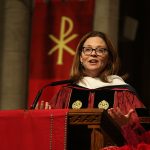
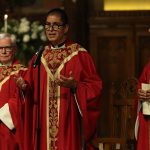
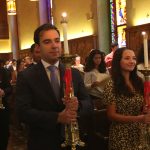
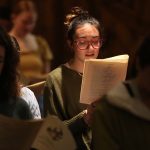
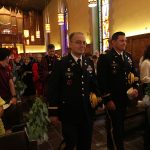
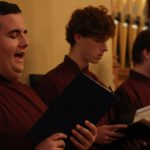
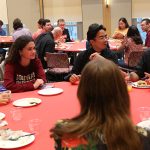
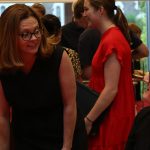
The Fordham community gathered on Sept. 11 to kick off the academic year at the annual Mass of the Holy Spirit on the Rose Hill campus.
President Tania Tetlow asked those in attendance at the University Church to think about the meaning of the ceremony, both current and historic.
“This is bigger than this particular moment, than this particular community,” she said. “When we do the Mass of the Holy Spirit, we perform the rituals that people just like us— students, faculty, staff—have performed for almost 500 years, of opening the semester of a Jesuit university.”
Tetlow told the students that the community gathered there on Sunday would be there for them along their journeys—both for their successes and when they hit bumps in the road.
“What tonight is about is telling you, above all, that in that work, in those choices, in those decisions you make—that you are loved by God, no matter what, for who you are, and that you are loved by Fordham, no matter what, for who you are,” she said. “We will wait with bated breath and hope you make the right choices. But we will be there for you when you stumble, when you learn, when you find a new path and a new way. And we want you to keep coming back to this community as a source of strength and above all, as a source of love.”
]]>Valerie Rainford, FCRH ’86, is the driving force behind the new Diversity Fund, which will provide financial aid to economically disadvantaged undergraduates and those from underrepresented groups who are living on campus.
“The difficulty of getting into college if you don’t have the ability to pay is enormous. The ability to stay in college without the proper means is even harder. And if you’ve managed to get in, there’s also the setback of working and paying off student loans,” said Rainford, a Fordham alumna and University trustee who spent 17 years paying off her student loans. “It’s disproportionately impacting Black and Latinx students, and Fordham needs to give these students a more equitable opportunity to attend. This fund was intended to do some of that.”
The goal of the new fund is to encourage a diverse student body, Rainford said. She explained that it will provide “last-dollar” financial aid, including funding for student housing, to undergraduate students at the Rose Hill or Lincoln Center campuses. Funds can also be used for University-accredited study abroad programs.
“It’s almost like a top-off fund,” Rainford said. “There’s a student that wants to come to Fordham, we want them to come to Fordham, and we do not want them turning down a Fordham education because they don’t have that final $2,000 or $5,000.”
Rainford, a Bronx native who overcame many hardships as a young woman, is now the founder and CEO of Elloree Talent Strategies, a consulting firm that helps senior leaders increase diversity and inclusion within their companies. She was previously a managing director at JPMorgan Chase, where she led the company’s Advancing Black Leaders strategy, and a 21-year veteran at the Federal Reserve Bank of New York, where she became the first Black female senior vice president.
Two years ago, Rainford created the Valerie Irick Rainford Scholarship Fund to help students of color attend Fordham. But she said there were still many students who didn’t receive enough financial aid. Rainford said she wanted to multiply her initial effort, especially after a year marked by racial unrest. So at the end of 2020, she set the wheels in motion for the Diversity Fund.
“There’s something to be said about diversity in the leadership positions. This is the kind of thing you can do and spark others to do when you have a seat at the table,” said Rainford, who joined the Board of Trustees in 2019.
Several other trustees have already donated to the fund, including Thomas J. Regan, S.J., co-chair of the board’s Mission and Social Justice Committee and rector of Fordham’s Jesuit community.
“The Jesuits at Spellman are happy to contribute to the Diversity Fund in the hope of advancing the University’s goal to make Fordham the most diverse and welcoming community it can be,” Father Regan said.
Rainford said anyone can contribute to the fund, and she challenges more members of the Fordham community—alumni, parents, families, friends, corporate sponsors—to help her meet this new commitment.
“The goal is to have others match what I’m trying to do: to create more opportunities for students of color to attend an elite school when they may not have the funding to,” Rainford said. “Funding should not be the thing that keeps them from going to college. This is intended to close that gap.”
Make a gift to the Diversity Fund here. Visit the 2021 Fordham Giving Day website for more information.
]]>“The heartfelt testimony given by members of our community in the course of the summer has made it searingly clear that racism is also present here at Fordham,” Father McShane said in his September 12 State of the University address, referring to stories of discrimination students and alumni of color shared, largely on social media.
“As painful as that admission may be, we must face up to it. Therefore, let me be clear: anti-racism, diversity, and inclusion are institutional and mission priorities at Fordham.”
Case in point: The trustees have mandated annual anti-racism training for all faculty, students, staff, and administrators—including the president’s cabinet and the board itself. And they have charged the newly renamed Mission and Social Justice Committee with ensuring that diversity and anti-racism are central to the University’s efforts.
In late October, Fordham Magazine brought together six members of the board for a candid discussion of bias, inclusion, and what it will take to bring about meaningful, lasting change at the University and beyond.
The Participants
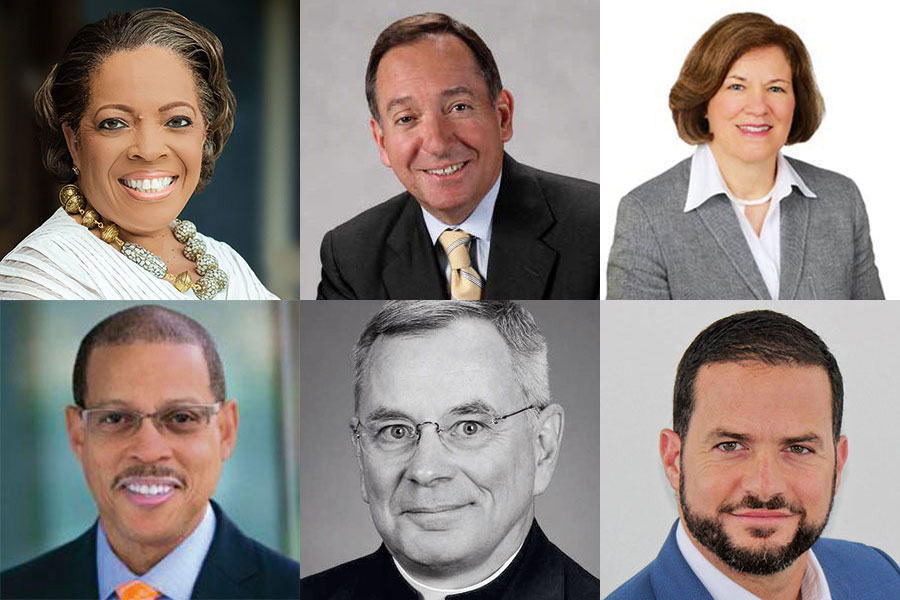
VALERIE RAINFORD, FCRH ’86
Moderator
Valerie Rainford is the CEO of Elloree Talent Strategies. Previously, she was a managing director at JPMorgan Chase, where she led the company’s Advancing Black Leaders strategy. She also had a 21-year career at the Federal Reserve Bank of New York, where she was the first Black woman to rise to senior vice president. She is the author of Until the Brighter Tomorrow: One Woman’s Courageous Climb from the Projects to the Podium (Elloree Press, 2014). A Fordham trustee since 2019, she is currently spearheading anti-racism trainings among the trustees and within the University as part of Fordham’s action plan for addressing racism.
ROBERT D. DALEO, GABELLI ’72
Chair, Fordham University Board of Trustees
Bob Daleo is a former vice chairman of Thomson Reuters, where he served as executive vice president and chief financial officer before retiring in 2012. He joined the Fordham Board of Trustees in 2008 and was elected chair in 2012.
MARY ANNE SULLIVAN, TMC ’73
Vice Chair, Fordham University Board of Trustees
Mary Anne Sullivan is senior counsel at Hogan Lovells. Previously, she served as general counsel for the U.S. Department of Energy. She became a Fordham trustee in 2016 and has been vice chair of the board since 2018.
ANTHONY P. CARTER, FCRH ’76
Anthony Carter retired in 2015 as vice president and chief diversity officer at Johnson & Johnson. At Fordham, he has served as a member of the Diversity Task Force, and in 2017 he led the search committee for a chief diversity officer. He joined the board in 2018 and is now co-chair of its Mission and Social Justice Committee.
THOMAS J. REGAN, S.J., GSAS ’82, ’84
Father Regan was named superior of the Jesuit community at Fordham in July 2020. He previously served as dean of the College of Arts and Sciences and the Graduate School at Loyola University Chicago, and as a Fordham trustee. He rejoined the board this year and is now co-chair of its Mission and Social Justice Committee.
GUALBERTO RODRIGUEZ, FCRH ’95
Gualberto Rodriguez has been the chairman of Grupo Navis since 2017 and managing partner of Semillero Ventures since 2016. From 2005 to 2017, he served as president of Grupo Navis, the San Juan, Puerto Rico-based firm that was founded by his grandfather in 1960 as Caribbean Produce Exchange. He joined the Fordham Board of Trustees in 2019.
The Discussion
This conversation has been edited and condensed for clarity and space.
VALERIE RAINFORD: So, the world has this problem, and many feel it’s pretty overwhelming and don’t know where to start. What gives you hope that we can make progress at Fordham?
BOB DALEO: One of the intentional actions we are taking is refining the focus of the trustees’ Mission and Social Justice Committee, which has oversight responsibility for our antiracism strategy. If we’re going to cure this, you have to start at the board level to make sure that the institution has in its process what the Jesuits have in their heart. And that’s a hard transition, to go from head and heart to how we behave as an institution.
We are an organization whose mission has always been about social justice. We’ve always talked about educating young men and women for others. What does that mean if it’s not for all others?
Calling out “social justice” in the title of this committee is our way of deliberately emphasizing our intent and ensuring that we stay focused.
We don’t have all the answers, but we are committed to combating racism, overt and covert, and doing our part to ensure the opportunity and ability for all to generate real wealth, to share in the American dream.
Understanding the Pain
In conversation, the trustees discussed some pernicious examples of bias and racism that students have experienced on campus in recent years—and they related those instances to their own experiences as undergraduates. Allowing these intensely personal stories to surface, they said, is part of the process of spurring the entire Fordham community to reflection and action.
RAINFORD: Are there specific experiences with racism that drive how you think about the work we are undertaking?
ANTHONY CARTER: We had an issue on campus several years ago when I was on the President’s Council. It was explained to me that a Black student, on move-in day—one of the most enthusiastic days for students—went downstairs to bring more stuff up to his dorm room, and when he got back, the N-word was carved into his door.
I wasn’t a trustee at the time, but my son had just graduated a year or so before that happened. I didn’t ask what is wrong with the school. I asked, what’s wrong with our students and families? Our focus was on making sure that the student did not feel the incident was systemic; it was not the baseline of what happens at Fordham.
That example brought back memories that I had of the white student union as a Fordham undergraduate during the 1970s, and my feeling, as a grown man still experiencing these things, is, how do we console? How do we make someone feel whole again? How do we make folks who are constantly subjected to this feel that we are better than this, and that your very being here, and that very experience here, indicates we have a lot of work to do?
I am emboldened, I am hopeful, because the leaders on this team believe as I do, that there’s zero tolerance for racism at Fordham University. And I think our students need to know that.
MARY ANNE SULLIVAN: Hearing Anthony’s examples makes me think of the Instagram posts by Fordham students and alumni after George Floyd was killed, and how shocked and hurt I was at how some Black students had been made to feel unwelcome. There was a story of a student who brought his little brother to see Fordham, and while he was giving his little brother a tour of the campus, he got challenged that he “didn’t belong” there. Having brought my little sister to campus when I was an undergraduate, and having her be so welcomed—it just crushed me to see that Black students were having such a different experience.
RAINFORD: Mary Anne, were you surprised, or was it the contrast that made you feel crushed?
SULLIVAN: It was the contrast, that I had done something so similar and had such an absolutely opposite experience.
GUALBERTO RODRIGUEZ: What it brought up for me is an experience I had in the first month of sophomore year at Fordham. I was in a U.S. history class, and the professor called on me to finish a very common American nursery rhyme parents use to put their kids to sleep. I didn’t know it, and he put me on the spot in front of the entire class by asking, “How come?” “Well, I’m from Puerto Rico,” I responded. And he’s like, “Isn’t that part of the U.S.?”
I felt so ashamed, that I really didn’t belong. I ran to my new theology professor, a Jesuit, and, like Anthony said, he consoled me. He made me realize, “You do belong. I know this professor. He’s a very kind man. He just doesn’t know about your background.”
I had written a letter, in my fear that I somehow found myself in the wrong place. He read my letter—I was trembling—and he said, “I think you should send this to him, and you should have a conversation.” So, my Jesuit professor, through the wisdom of his loving advice, empowered me to take on this issue by myself. And it was a beautiful conversation with a very kind man who simply had never thought about why a student from Puerto Rico would not know a common nursery rhyme in the States.
So my hopes are, in this whole process of tackling racism, that we dig deep for the Jesuit approach, a very loving, consoling, compassionate one, focused on justice with compassion, without anger.
THOMAS REGAN, S.J.: I taught for 19 years at Fairfield University in Connecticut. And Connecticut prides itself on planting dogwood trees. Every spring they have this magnificent dogwood festival, and the colors are just breathtaking. I was living in a residence hall, and I said to the student who lived next door to me, “I know it’s finals, but you need a little break from studying. You have a car. Go up to Greenfield Hill, and just allow yourself to see the beauty of Fairfield.” And so after dinner that night, I walked by his room. I said, “How was the dogwood festival?”
And he says, “Well, it was really pretty, but I got stopped three times by the police in Fairfield.” And your heart just goes out to him. Why can’t he go up to Greenfield Hill, like any other student, and have an enjoyable experience? Why is he deprived of that?
RAINFORD: So, the unfortunate reality is that racism is not new and is as prevalent today as ever. Each of us has seen it before, but have we taken it on to end it? To make it clear that as an organization, we will not tolerate racism? Now is the time to openly and proactively take it on as trustees of this great institution that we all love.
Making Anti-Racism Part of the Fordham DNA
The trustees spoke about the need to root out racism at the University in a systemic way, and why, despite a host of challenges related to remote learning and the ongoing economic and social impacts of the COVID-19 pandemic, they are committed to using the board’s authority to unite the community in combating racism and educating for justice.
RAINFORD: What are your thoughts for how we will embed anti-racism policies and practices in how we lead as a board?
CARTER: What I want us to be conscious of is that while we don’t have all the answers, the questions that we’re asking as a governance body can lead us to look for solutions. And not only look for solutions but to hold leaders in the Fordham community and beyond accountable for those solutions.
But there are two things, I call them syndromes. One is the fatigue syndrome. And one is the obvious racism syndrome. The fatigue syndrome allows us to believe, “Oh man, this has been going on for so long.” And I hear this from a lot of my white friends. “It’s not the time to talk about this. Since George Floyd and all the things happening before that, we’re just so fatigued.”
The racism syndrome says to me that we at Fordham have all made ourselves accountable. Whether we experienced racism or not, with our action plans, we embrace the fact that racism affects us all. This is not the time to be fatigued.
There are some things embedded in our strategic plan around this topic. But now we have embraced anti-racism policies and behaviors and mechanisms to solve this thing in a way in which we own it. And our Fordham community must know that, because we put people on notice. We put our own board on notice.
SULLIVAN: If we’re going to be relevant going forward, we have to make rooting out racism part of our DNA. This can’t just be a nice-to-have that we do on the side. It has to be a systemic change that comes about by a thousand different actions we take. It has to be part of our course offerings, part of our student body, part of our faculty, part of our public safety force.
It’s got to be everybody’s job to make Fordham relevant for the future. And the reality is, the future has many more students of color who are going to be looking for places in college, and a society that demands that we be representative of the communities we live in.
At my law firm, we cannot put forward a team for a client on a project if we don’t show that we are including members of color. And Fordham’s role is to fill the pipeline so that those people are there.
And Anthony, we do have a lot in the strategic plan that was already focused towards educating for justice, diversity, equity, and inclusion, but we’re now saying with everything we look at, how is it responding to the issue of racism in our society? How are we fixing the problem at Fordham in this one area, in this one area, in this one area?
We have four broad goals in the strategic plan, and I would say three of the four pretty explicitly lend themselves to anti-racism objectives. Holistic student development—addressing the needs of students to feel respected, to feel consoled, when necessary. Walking with our community. We sit in New York City, a very diverse community, and we are not nearly as diverse as the community we sit in. The goal is to develop more partnerships of all kinds that will engage the broader community. We are looking for ways to strengthen what we’re doing to have a greater impact. For example, cybersecurity is an area where we are partnering with the historically Black colleges and universities on a cybersecurity initiative. The fourth broad objective is STEM-plus. I would say people of color are underrepresented in STEM.
I’m a to-do list kind of person, and so I want to see what’s on our to-do list that is going to address this problem so we’re not just having pious thoughts and writing beautiful statements.
Changing the Way Fordham Looks
The trustees spoke about the barriers between Fordham’s campuses and the surrounding areas of New York City, and of efforts to recruit and retain diverse faculty and students.
RAINFORD: Maybe this is for you to help us with, Father, but what is Fordham’s unique opportunity given its Jesuit traditions around social justice? And what’s the thing that gives us the ability to do this differently than probably any other university in New York City?
FATHER REGAN: We have to change the way that Fordham looks. I’m just coming off six years of being dean of arts and sciences at Loyola University Chicago, and every time we hired a tenure-track faculty member, they sent three candidates up to the dean. And so I said, “If we don’t have a person of color on that list, you’re going to get it back.” It’s very competitive, but you have to be really intentional that you’re going to do this and hold people to the fire. Whoever is applying, the HR managers have to say, “Bring me a diverse slate of candidates and let’s change the way that Fordham looks.”
To speak to the Jesuits, we have this incredible Jesuit network. We could create scholarships for the students coming out of the 56 Jesuit high schools in the U.S. If you’re a person of color, you have a home at Fordham. We’re in New York; you can’t get a more diverse city than New York. And so we have to be reflective of this city.
But we also have to make people feel welcome. Because I listen, and see on Instagram—the students want to come, people who work here want to come, but they want to see people who look like them. We really have to say, this is who we are and we’re going to put up the money to make this happen.
RODRIGUEZ: It strikes me that there would be a special Fordham Jesuit way to address, on a day-today basis, the issues of inclusion and racism. That is what I would like to draw from the Jesuit tradition, this idea of comforting and consoling and reconciliation. That could make the process of having a different look to the faces—the process itself—interesting.
For example, an invitation to a prospective African American faculty or staff member would be to be part of a process of change. We have a Jesuit way to explore that experience of not yet being the end result. I think that will make us a very interesting lab as an institution for people who like to be the astronauts, the first on the moon, to experience that in a safe, consoling, socially interesting laboratory.
RAINFORD: I love that concept of a lab for anti-racism, done in a Fordham way, rooted in the Jesuit tradition. Now, how do we get that done?
Mastering the Architecture of Reform
Since the spring, deans, faculty, administrators, students, and staff have been working to advance Fordham’s anti-racism goals, but in conversation, the trustees expressed the need to establish a framework to ensure that the community’s efforts are not only unified but sustainable.
DALEO: In establishing a framework, the first thing you want to do is set the strategy; then you say, as an organization, “Okay, do we have the structure to properly implement that strategy?” And then the third thing is, “Do we have the people in that structure to run that process to implement the strategy?” I think one of the most important things we can do as a board is to be nudging the organization on these issues.
As a board, the one thing I’d like us to always come back to is, “Okay, these are great ideas. How do we get it done?”
We must also continually remind ourselves that our role is one of oversight. We are not the strategists but instead evaluators of the strategy. We have tremendous power, if you will, by shaping that, by pushing back and saying, “Nope, that isn’t quite right. Go back and think about it again.”
CARTER: This is moving. It’s motivating. We can be the masters of the architecture around designing inclusive behavior.
For example, we invite faculty to our board meetings, typically department heads; we should invite faculty of color to periodically meet with us. As the governing body, we determine how we want to engage. And from that engagement, we can become more solutions-oriented. “We’re here to hear you. What can we do?”
FATHER REGAN: Higher education has changed so dramatically, and the pandemic has just put that in floodlights. What does a university do? How is it going to look different after the pandemic? That’s exciting. That’s exactly where we need to go.
CARTER: I’m encouraged by the reports we get on what’s going on with COVID-19, how the University is proactively managing the crisis to protect the Fordham community. It is data-laden, well-researched; there is direction to it. Now we need to say, with that same sort of vigor, how do we apply that to those things that focus on social justice? How do we make that an agenda item with data, with information to measure our progress?
Once you tell somebody, “I need a report on that,” people get pretty serious. So, I think we have the energy to keep us aware of what’s going on with this backdrop we’re living in, but what are the other components that might be missing from those presentations that we need to know?
SULLIVAN: When we’re meeting in person as a board, we routinely have a lunch speaker. I would suggest that we set an expectation that whoever is presenting will address anti-racism. What is their school doing? What is their part of the University doing on this subject to advance our goals?
DALEO: I love all of your ideas, including the suggestion to increase our interaction with students and faculty of color so that we can talk about and learn how these issues affect them directly. As we move forward, the key will be to continually look for ways to institutionalize improvements for long-lasting change. Let’s continue to have these kinds of open discussions more broadly, because it’s easy to get frustrated by the problem of racism, to not know how to solve it.
I believe, and I think Fordham believes, the way you change the world is one life at a time. Our actions need to ensure that we are impacting every single life.
RAINFORD: Team, the essence of this conversation is that while we don’t have all the answers, the board is proactively engaged and owning the challenge. We’re committed to pushing each other and pushing the organization and asking all the questions that will continue to move the organization forward to create sustainable and equitable change. Thank you!
]]>Addressing Racism, Educating for Justice
The University’s anti-racism plan features six broad goals and nearly 40 concrete action steps.
Six Goals, Six Examples of Work Underway
1. Develop robust admissions strategies for effective recruitment of students of color.
Fordham is expanding pipeline programs with local schools, such as Cardinal Hayes High School in the Bronx, that have a high number of Black and Latinx students.
2. Recruit and retain a more diverse faculty, administration, and staff.
Of 26 arts and sciences full-time tenure/tenure-track faculty members hired this year, 50% are persons of color.
3. Develop curricular and cocurricular initiatives that support the imperative of confronting racism and educating for justice.
With support from Teaching Race Across the Curriculum grants, academic departments are integrating questions of race and justice into introductory courses.
4. Create a more welcoming and affirming campus.
A multicultural center will be part of the campus center expansion at Rose Hill, and a similar center will be established at Lincoln Center.
5. Build lasting partnerships with our neighbors.
Fordham has joined the Bronx Is Reading to co-sponsor and co-host the annual Bronx Book Festival and other events.
6. Amplify our voice in educating for justice beyond the campus.
The Center on Race, Law and Justice recently hosted a webinar on police reform that included Benjamin Tucker, LAW ’81, first deputy commissioner of the New York City Police Department.
“Fordham is blessed—a word I do not use lightly—with an exceptional Board of Trustees,” said Joseph M. McShane, S.J., president of the University. “Our eight new trustees typify the generosity, wisdom, and dedication of Board members. I, and the University, are indebted to them for the time, treasure, and care they bring to Fordham, and especially to our students. I look forward to working with them as we navigate this most challenging of years.”
In the past decade, former and current board members have helped establish endowed chairs and endowed or current-use scholarship funds, fund the construction and renovation of buildings on campus, and guide University policies and initiatives. Recently, the board helped develop the University’s anti-racism action plan and mandated annual anti-racism training for all faculty, administrators, staff, and students—including the president’s cabinet and the board itself. Below are the condensed bios of this year’s newly elected trustees.
Meaghan Jarensky Barakett, GSS ’16
Founder and Executive Director, One Girl
Barakett is the founder and executive director of One Girl, Inc., a nonprofit that develops young women into leaders through charity, advocacy, and community organizing. She is also a two-time beauty pageant winner; she won the Miss New York USA title in 2005 and Mrs. New York America in 2010. An unusual obstacle in her courtship with her husband, Brett Barakett, led her to become an anti-cyberbullying advocate who has pushed for passage of the E-Impersonation Prevention Act, New York Senate Bill S5871-A, which would elevate the crime to a felony. Barakett graduated from Fordham’s Graduate School of Social Service with a master’s degree in nonprofit leadership in 2016. That same year, One Girl and GSS’s Institute for Women & Girls hosted its first “Women in Charge” conference, which became an annual event for several years. More recently, Barakett served as a panelist in Fordham’s 2018 Women’s Philanthropy Summit and a member of the President’s Council. The Baraketts are finalizing plans to establish an endowed scholarship fund at Fordham in loving memory of their son, Lincoln.
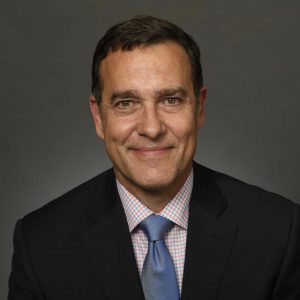 Ulderico Calero Jr., FCLC ’90
Ulderico Calero Jr., FCLC ’90
Head of Banking and Lending, BNY Mellon
Ulderico “Rick” Calero Jr. is a financial services executive with more than two decades of experience. Before joining BNY Mellon Wealth Management, he spent six years at TIAA, where he served as senior managing director in institutional financial services and president and CEO of TIAA-CREF Trust Co. FSB. He has also held various senior executive roles at Umpqua Financial Holdings, Citigroup, and Regions Financial. In addition, he is a fellow of the Aspen Institute’s Finance Leaders Fellowship, a member of the Aspen Global Leadership Network, and a board member of the Bank Administration Institute. For nearly 12 years, he served in the U.S. Army in various positions, including as a Green Beret. He earned a bachelor’s degree in economics from Fordham College at Lincoln Center and an MBA from Southern Methodist University’s Cox School of Business. As a Fordham student, he received an ROTC Scholarship. He is a past member of Fordham’s President’s Council, where he mentored current students and helped fund key initiatives. Calero and his wife, Nancy, whom he met in the sixth grade, have three children.
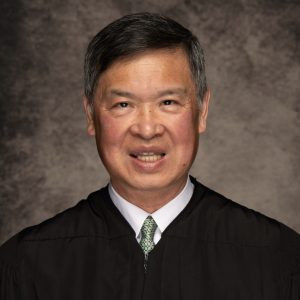 Denny Chin, LAW ’78
Denny Chin, LAW ’78
Judge, United States Court of Appeals – Second Circuit
Chin is the first Asian American to win a federal judicial appointment on the East Coast and an award-winning circuit judge who has presided over many notable cases in his judicial career, including the sentencing of infamous Ponzi schemer Bernie Madoff. A Hong Kong native, Chin graduated magna cum laude from Princeton University and earned his law degree from Fordham Law School, where he served as managing editor of the Fordham Law Review. Over the next four decades, Chin climbed the ranks in the U.S. courts and private firms, from law clerk, to associate, to assistant U.S. attorney, to partner, to U.S. district judge, to his current position. He is the recipient of multiple awards, including the Spirit of Excellence Award from the American Bar Association, the Edward Weinfeld Award from the New York County Lawyers Association, and the Medal of Achievement from the Fordham Law Alumni Association. At Fordham, he is an adjunct professor of law who has regularly taught first-year legal writing since 1986. Chin and his wife, Kathy Hirata Chin, have two children.
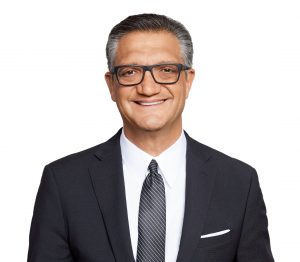 Emanuel Chirico, GABELLI ’79
Emanuel Chirico, GABELLI ’79
Chairman and Chief Executive Officer, Phillips-Van Heusen
Emanuel “Manny” Chirico is chairman and CEO of PVH Corp., the world’s second-largest apparel company and parent company to brands like Calvin Klein and Tommy Hilfiger. He has received numerous accolades for his work, including being named to the NRF Foundation’s List of People Shaping Retail’s Future in 2020 and induction into the Business of Fashion 500 Hall of Fame in 2019. Born and raised in the Bronx, Chirico serves on the boards of Montefiore Medical Center, Save the Children, United Nations Global Compact, and other organizations; he has previously served on the Fordham Board of Trustees. This year, Fordham and PVH entered a new partnership: PVH will donate $1 million to the Gabelli School of Business to enhance sustainability curriculum and support speakers, visiting scholars, and academic conferences. Chirico and his wife, Joanne, have supported other University initiatives and incorporated lessons from Fordham into their daily work. Two of their three grown sons are Fordham alumni. The couple will be honored at the Founder’s Dinner on March 22, 2021.
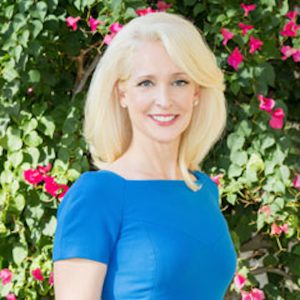 Darlene Luccio Jordan, FCRH ’89
Darlene Luccio Jordan, FCRH ’89
Executive Director, The Gerald R. Jordan Foundation
Jordan is the executive director of the Gerald R. Jordan Foundation, a nonprofit named for her husband that champions education, health and medical research, youth services, and the arts. She is a former assistant attorney general of Massachusetts, where she served in the insurance fraud division from 1996 to 1999. Previously, she was an assistant district attorney in the Norfolk district attorney’s office. She served as a national finance co-chair for Mitt Romney for President in 2008 and 2012, and was the state finance chair for Florida Gov. Rick Scott in 2014. At Fordham, Jordan and her husband established the Darlene Luccio Jordan, Esq., and Gerald R. Jordan Jr. Endowed Scholarship, which gives preference to undergraduates from Boston high schools. Jordan served as co-chair of Excelsior | Ever Upward | Campaign for Fordham and Faith & Hope | The Campaign for Financial Aid, the University’s most recently completed campaign to help finance opportunities for Fordham students. She has previously served on Fordham’s board. Jordan and her husband, Jerry, live in Florida with their daughter, Charlotte.
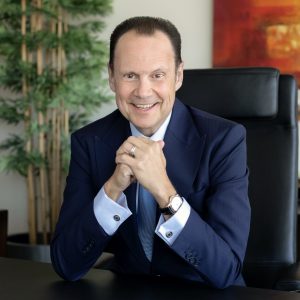 Armando Nuñez, GABELLI ’82
Armando Nuñez, GABELLI ’82
Adviser and former chairman, Global Distribution Group, ViacomCBS
Nuñez is adviser and former chairman of the global distribution group and chief content licensing officer for ViacomCBS, where he oversaw all content licensing for ViacomCBS-owned programming to third-party platforms and monetization of the industry’s largest library of film and television titles. Nuñez, who has held senior leadership roles in international media for more than two decades, also directed CBS Television Distribution, which produces and distributes industry-leading franchises including Entertainment Tonight and Jeopardy!. He has been recognized by multiple organizations for being a major television influencer. In 2014, he was No. 7 on The Hollywood Reporter’s list of the top 25 Latinos in entertainment. Nuñez graduated from the Gabelli School of Business with a bachelor’s degree in marketing and management. In 2012, he established the Nuñez Family Scholarship Fund for full-time Gabelli students, with preference given to students who are economically disadvantaged or part of underrepresented populations. He has previously served on the Fordham Board of Trustees.
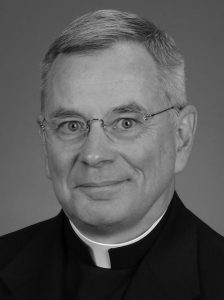 Thomas J. Regan, S.J., GSAS ’82, ‘84
Thomas J. Regan, S.J., GSAS ’82, ‘84
Rector, Jesuit Community at Fordham
This past summer, Father Regan became the leader of the Jesuit community at Fordham. In 1980, he began his academic career at Fairfield University as an instructor of philosophy and went on to become associate professor and chair of its philosophy department and associate dean of the College of Arts and Sciences. His work at Fairfield earned him the Most Influential Educators award, given to five faculty members, every year from 1990 to 1995. He also spent nearly a decade at Loyola University in Chicago, where he served as an associate professor of philosophy, academic dean at St. Joseph College Seminary, director of the Jesuit First Studies master’s program, and dean of both the College of Arts and Sciences and the Graduate School. From 2010 to 2011, he was a visiting associate professor of philosophy at Fordham. Father Regan also served as Provincial for the New England Province of the Society of Jesus for six years. He has served previously on Fordham’s board. He is the new co-chair of the Mission and Social Justice Committee with Trustee Anthony Carter.
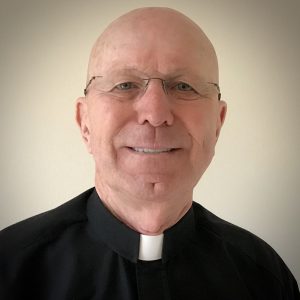 Richard P. Salmi, S.J.
Richard P. Salmi, S.J.
Rector, Jesuit Community at Loyola University Chicago
Father Salmi, previously the head of Fordham University’s London Centre from 2014 to 2020, is currently the rector of the Jesuit community at Loyola University Chicago. A native of Cleveland, Father Salmi has served in various roles throughout his life, including director of community service programs; coordinator of spiritual counseling for people with AIDS, their families, friends, and caregivers; and vice president of student affairs at Loyola University Chicago. From 2009 to 2013, he served as president of Spring Hill College, where he oversaw the opening of a center in Bologna, Italy. Father Salmi has been a member of nearly a dozen boards, including Cristo Rey Jesuit High School in Chicago and the Association for Student Affairs at Catholic Colleges and Universities. Among other degrees, he holds a Master of Divinity degree from the Jesuit School of Theology of Santa Clara University and a Ph.D. in higher education administration from Boston College.
]]>